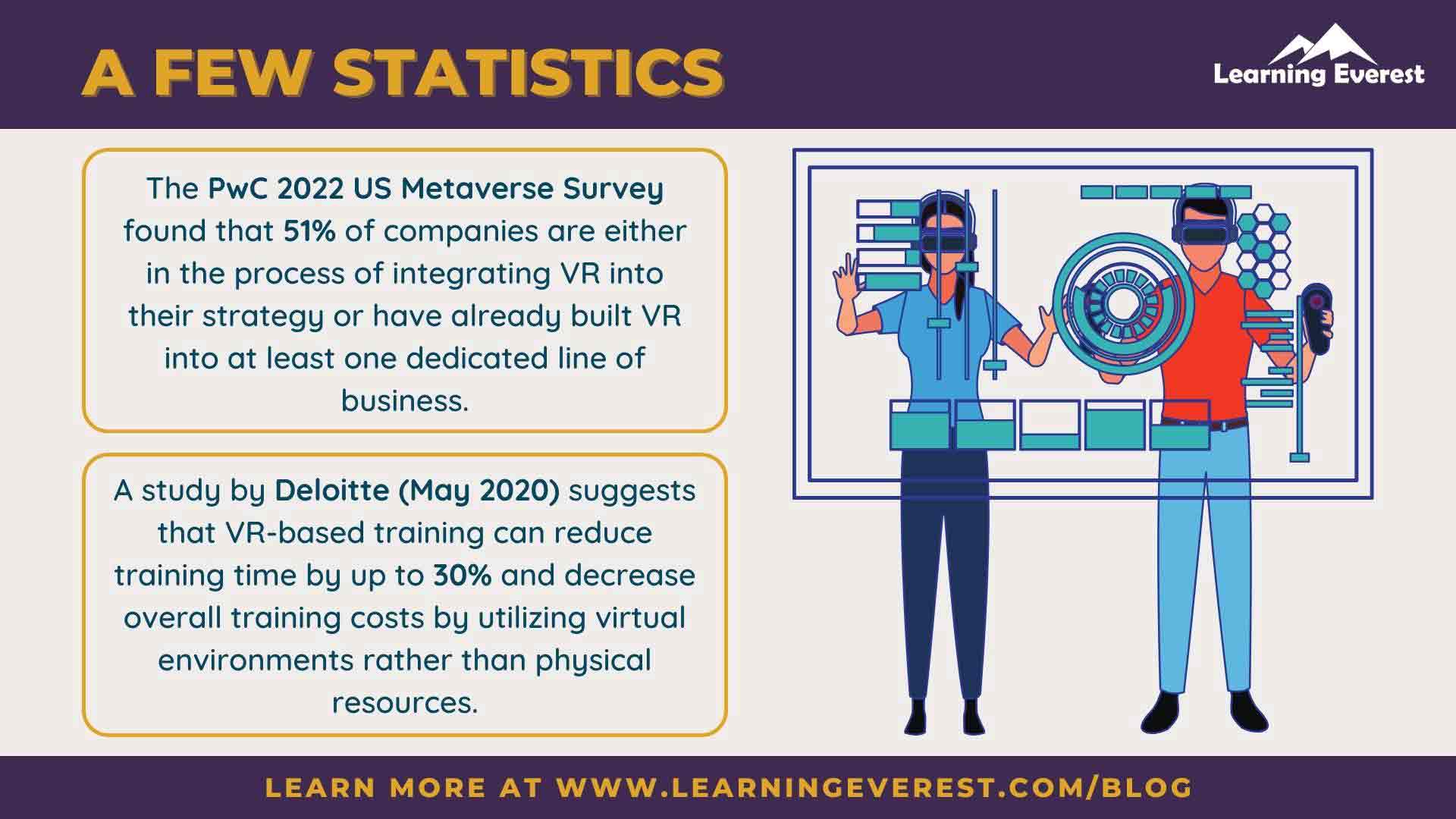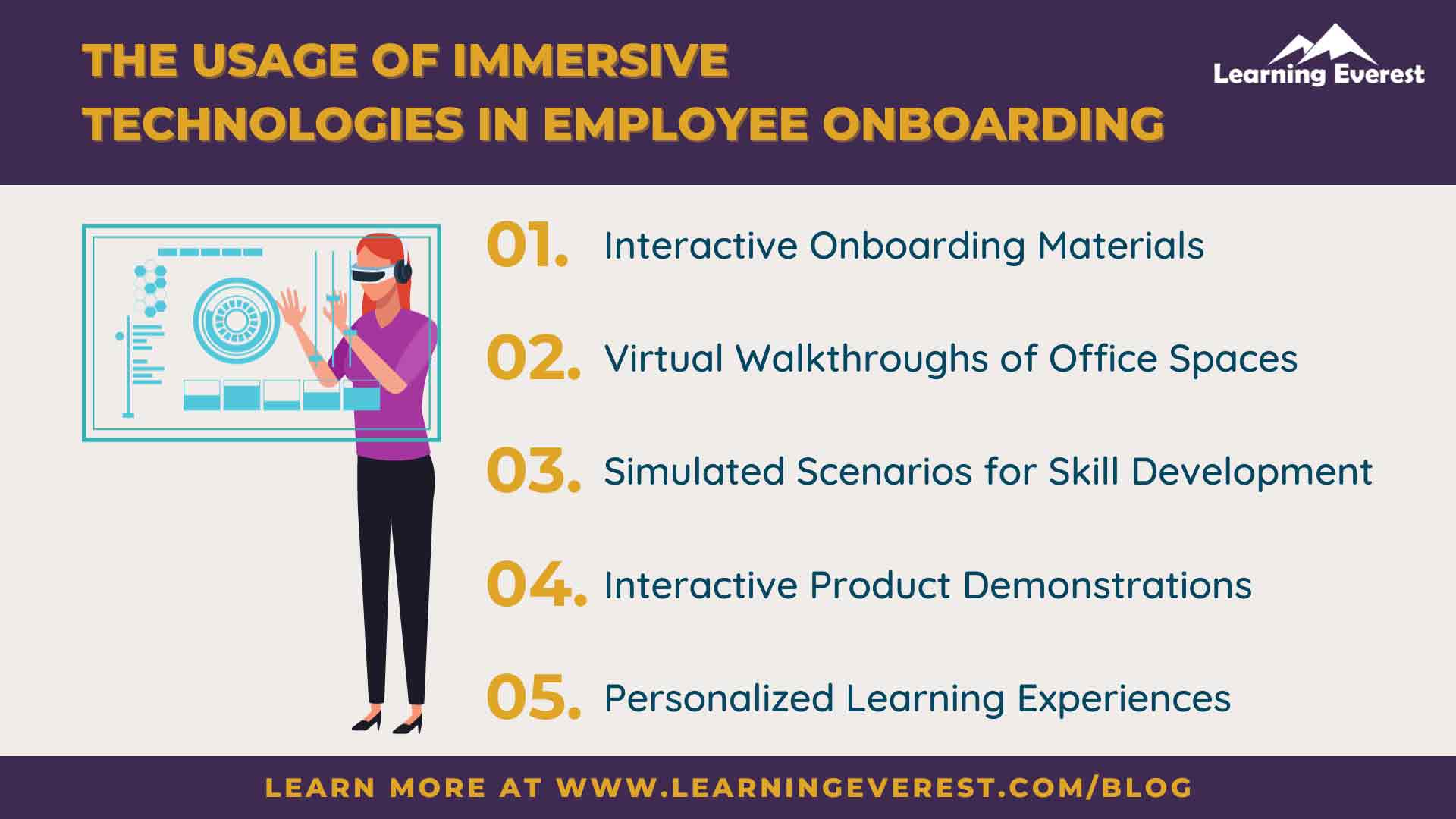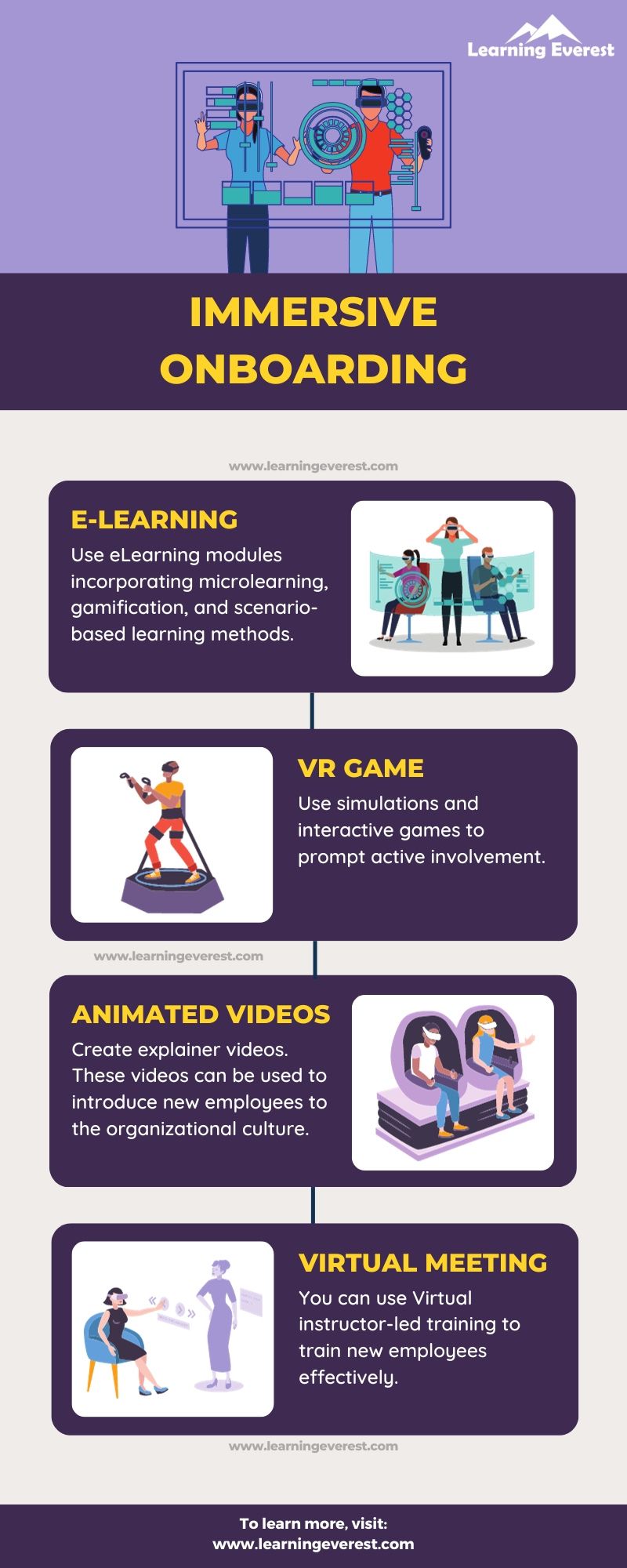Immersive onboarding is the most contemporary attempt at polishing the employee onboarding experience. Rather than simply running new employees through a list of organizational policies or having them watch an animated training video, immersive onboarding integrates eLearning, hands-on exercises, and face-to-face interactions into a cohesive program. For recruiters, immersive onboarding helps them to connect with new employees more. So, let us look at some benefits and strategies for immersive employee onboarding.
Table of Contents
What is Immersive Onboarding?
It is an effective onboarding program that simulates real-world scenarios to train new employees in a safe and engaging training environment. It combines the sense of the presence of virtual reality (VR) with advanced learning and training theory, data science, and cognitive design to improve effectiveness and user engagement. The new immersive onboarding:
- Is far more engaging
- Builds real skills
- Is shorter and more effective
- Demonstrates the cultural values
- Let us train the new employees anywhere.

Immersive Onboarding – A Few Statistics
Let us discuss the benefits in detail.
Benefits of Using Immersive Onboarding
Enhanced Skills Development
It can contribute to highly effective skills development. Going through a new employee training module in immersive onboarding is not just fun and different: employees are learning faster and more effectively. They build critical skills needed for the job. New employees can get hands-on experience with new health and safety protocols. They can upskill their communication skills. These are just instances of the critical skills in the fields of health & safety industries, operational efficiency, consumer service, soft skills, and diversity and inclusion that you can create during your onboarding phase.
Efficiency Through Shorter Training
The new onboarding is short and effective. It offers hands-on practice; it offers shorter, more effective new-employee training that makes the critical skills needed to succeed. Real-time feedback, in turn, accelerates proficiency. So, the learning that happens in immersive onboarding translates much faster and more effectively into real life.
Improved Understanding
Learning by doing increases employee understanding and retention. Realistic practice in immersive onboarding leads to real-world behavioral changes because learners are empowered to make decisions that are consequential to their training performance.
Increased Confidence
Complete immersion increases preparedness and confidence. Research has shown that human brains treat VR experiences much like they would treat real life, so the training that happens in immersive onboarding translates much faster and more effectively into real life.
Showcases Organizational Culture and Values
This new onboarding exhibits the culture. Every organization has different cultural values that contribute to strong employee experience and customer experience. The employee onboarding phase is a key place to instill and drive these values home. By experiencing these values in action through total immersion with simulated customers and colleagues, new employees had a better understanding of what good demeanor and customer service looked like.
Fostering a Culture of Learning
Using immersive onboarding during new employee training helps create a culture of learning. It is more than just a medium to demonstrate skills and values during the onboarding stage. It says something about an organization’s dedication to the employee.
Flexibility
With immersive onboarding, new employee training can occur anywhere. Sometimes due to safety and compliance reasons, as well as time and opportunity costs, it is not practical to conduct training on location. But immersive onboarding enables learners to put on a headset and be transported to the warehouse, office, or store floor without having to close operations or train during off-hours.
High Employee Engagement and Satisfaction
It does an exceptional job of keeping the employees engaged throughout the learning journey. Therefore, it has a better completion rate as well as a retention rate. This increases employees’ job satisfaction and improves the organization’s capability to hold onto valued employees during onboarding.
Now, let us look at some practices of immersive onboarding:

The Usage of Immersive Technologies in Employee Onboarding
Now, let us look at some of the most effective strategies for immersive onboarding.
Strategies for Immersive Onboarding
There is no one-size-fits-all when it comes to creating an onboarding process, but immersive methods, by nature, are more engaging and tailor-made than more traditional methods. A few tips for hosting immersive onboarding, in general, are listed below.
- Use eLearning modules incorporating microlearning, gamification, and scenario-based learning methods.
- Create explainer videos. These videos can be used to introduce new employees to the organizational culture, teach them the basics of their new job, and explain how the company works.
- Use simulations and interactive infographics to prompt active involvement.
- Host virtual live events, even if they are synchronized over multiple webcam screens.
- Employ virtual reality (VR) tools if you can.
- Give the employees practical tools that allow them to bridge gaps autonomously instead of focusing solely on immersion and aesthetics.
It is important to note that immersive onboarding does not replace the traditional employee onboarding procedure. Instead, we can use immersion to give a learner an experience where in-person job training would cause disruption to the job, present a high cost to the organization, or create a safety risk.
Infographic
Knowledge check!
Ready to explore how this cutting-edge approach can benefit your team? Schedule a meeting with our experts to discuss personalized strategies and implementation, Schedule a Meeting Now!






